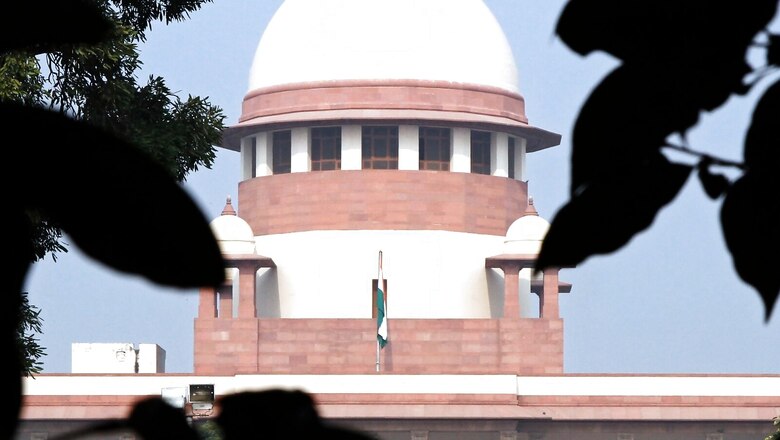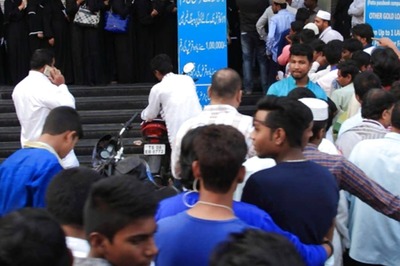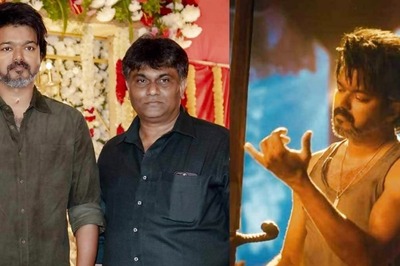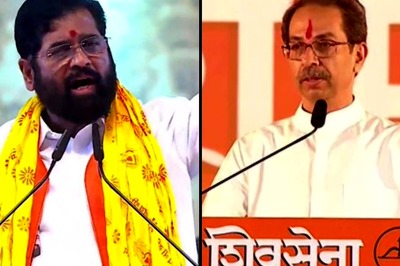
views
The Supreme Court delivered two separate verdicts in a 4:1 judgment on whether restrictions can be imposed on a public functionaries’ right to freedom of speech and expression. The separate judgments were made by Justice V Ramasubramanian and Justice Nagarathna.
While reading the majority judgment, Justice Ramasubramanian said: “A statement made by minister, even if traceable to any affairs of state or protecting the government, cannot be attributed vicariously to the government even applying the principle of collective responsibility.”
“A mere statement made by minister inconsistent with the rights of the citizens may not be actionable as a constitutional tort but if it leads to omission or commission of offence by a public official then it is a constitutional tort,” added Ramasubramanian.
The Supreme Court also said that no additional restrictions, other than those prescribed under Article 19(2) of the Constitution, can be imposed on a citizen under right to freedom of speech and expression.
Justice Nagarathna’s Dissenting Opinion
While delivering a verdict in the case, Justice Nagarathna said, “For a country like us, freedom of speech and expression is a much needed right so that citizens are well informed and educated on governance.”
“Hate Speech in the sense strikes at the foundational values by making the society unequal ands also attacks citizens from diverse backgrounds especially in a country like us that is Bharat… it shall be the duty of every Indian to uphold the dignity of every individual irrespective of religion, caste and also uphold the dignity of women,” she added.
The justice also mentioned that public functionaries and celebrities have to be more responsible and exercise more restraint since their reach is more and impacts the citizens at large.
Five-Judge Bench Delivered Verdict
A five-judge Constitution bench headed by Justice S A Nazeer, delivered the verdict. The bench also comprises Justices B R Gavai, A S Bopanna, V Ramasubramanian and B V Nagarathna.
Tuesday’s Supreme Court cause list had mentioned that there will be two separate judgements for the case, which would be pronounced by Justice Ramasubramanian and Justice Nagarathna.
SC Reserved Verdict on Nov 15
The top court, which reserved its verdict on November 15, had said people holding public offices should exercise self-restraint and not blabber things that are disparaging or insulting to other countrymen.
The apex court had said this approach is part of our constitutional culture and there is no need for it to formulate a code of conduct for public functionaries.
The court had noted that irrespective of what Article 19(2) may say, there is a constitutional culture in the country where there is an inherent limitation or a restriction on what people holding responsible positions say.
Article 19(2) relates to the powers of the State to make laws imposing reasonable restrictions on the exercise of the right to freedom of speech and expression in the interest of sovereignty and integrity of the country, public order, decency, morality etc.
“It is inherent and there is no need for this court to give a code of conduct on that. Any person holding a public office or is public servant, there is an unwritten rule and it is part of constitutional culture that they impose a self restriction and not blabber things which are very disparaging or insulting to our other countrymen.
“There is something like a constitutional restriction or limitation inherent in such persons. This must be inculcated in our political society and our civic life,” Justice Nagarathna, who was part of the five-judge bench, had observed orally.
A three-judge bench had on October 5, 2017 referred to the the Constitution bench various issues for adjudication, including whether a public functionary or a minister can claim freedom of speech while expressing views on sensitive matters.
The need for an authoritative pronouncement on the issue arose as there were arguments that a minister cannot take a personal view and his statements have to be in sync with government policy.
The case stemmed from a statement made by then Uttar Pradesh minister Azam Khan about the Bulandshahr gang-rape case victims.
The court was hearing a plea filed by a man whose wife and daughter were allegedly gang-raped in July, 2016 on a highway near Bulandshahr seeking transfer of the case to Delhi and lodging of an FIR against Khan for his controversial statement that the gang-rape case was a “political conspiracy”.
(With inputs from PTI)




















Comments
0 comment